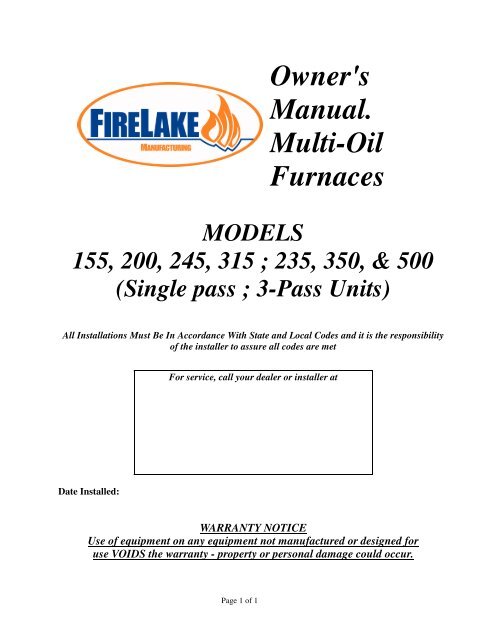So let s look at the flue pipe design.
Oil furnace flue pipe code.
Using a plumber s tee and one 90 degree elbow we ended up with a whopping 54 feet of tepl or almost two and one half times the allowed flue pipe size by code.
Other approved materials that will resist without cracking softening or corrosion flue gases and condensate at temperatures up to 1 800 f 982 c.
The different types of venting.
Oil side wall vent systems tjernlund corporation provides ss2 sideshot sidewall vent systems for oil fired heating boilers furnaces or water heaters.
A pipe and appropriate connectors run from the actual furnace unit out of the home for venting.
The most common variables for which the flue must be sized are btu capacity of the furnace the horizontal and vertical length of the flue and the number of elbows and type of vent connector the part of the flue that connects the furnace to the main flue pipe.
Listed and labeled chimney lining systems complying with ul 1777.
Gas oil vent flue vents materials table gas and oil vent flue piping uses different types of materials depending on the applications.
Connectors for oil and solid fuel burning appliances shall be constructed of factory built chimney material type l vent material or single wall metal pipe having resistance to corrosion and heat and thickness not less than that of galvanized steel as specified in table m1803 2.
Clay flue lining shall be installed in accordance with the international building code.
It is important that gas or oil flue vent pipes are installed correctly and maintained throughout the life of the furnace this pipe has a condensation problem which an adept technician will recognize and take corrective action before the corrosive effects of.
Flue vent connectors also called smoke pipe stack pipe or flue pipe by some people are typically single walled metal pipes connecting a heating appliance to a chimney vent or flue.
Flue pipe is too small for the amount of combustion gases generated by the furnace.
Table m1803 2 thickness for single wall metal pipe connectors.
According to the international code council clearance area for this type of oil furnace venting is nine inches.
Some models of single wall metal flue vents need as much as 36 inches for proper fire safety clearance.
Using the conventional way and using 90 degree elbows we ended up with a tepl of 27 feet or 5 feet more than what is allowed by the codes.
Well making sure that you choose the right venting style will protect them.
Unless we have different explicit guidance from the manufacturer of an oil fired heating appliance being vented we want to see at.
When we are talking about gas furnace vent pipe code we need to talk about the different types of the vents first after all you want to keep your family safe from harm.

